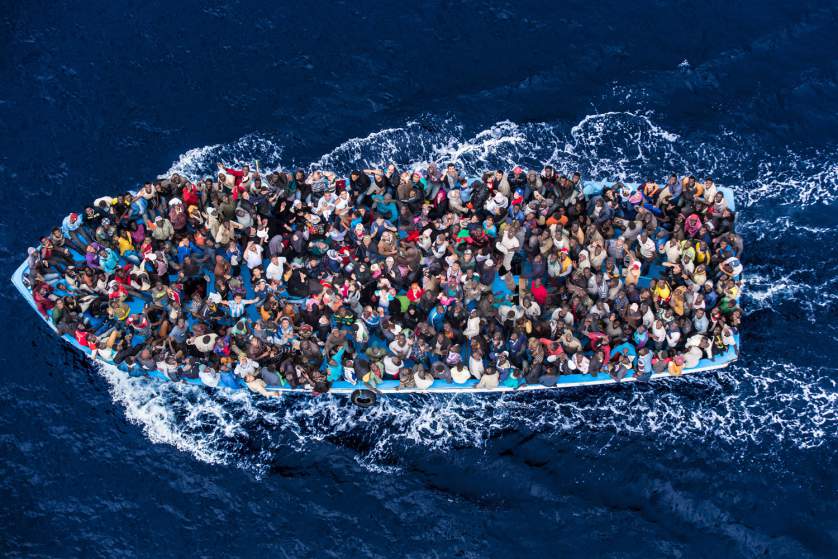Addressing refugee crisis is within the world's grasp

By Bloomberg View
There are now more refugees in the world than at any time in recorded history. Yet this global crisis is mostly unrecognized as such; instead, it is seen as a collection of regional crises, from the Syrian border to the southern U.S. to coastal Myanmar.
QuickTakeSeeking Asylum
Every refugee crisis is distinct, of course, in cause and remedy. At the same time, the consequences of war and persecution are not merely local. This is a man-made catastrophe that affects every nation on earth -- and the world's richest countries have a practical and moral obligation to do more about it.
The United Nations' latest refugee report, released in mid- June, is bracing. Wars and other conflicts have displaced almost 60 million people. The number of forcibly displaced people rose by more than 8 million in 2014. More than 30 million are children.
Yet too many in America and Europe see themselves as under siege from economic migrants (or worse, Islamist terrorists) posing as asylum seekers, fueling an anti-immigrant mood that makes it difficult for governments to address the problem. So the first order of business for the developed world is to change perceptions.
Most of the world's displaced -- 38 million people -- are stuck inside their own countries. And of those who manage to escape, 86 percent go to the mostly poor and often fragile countries nearby. Images of refugees crossing the Mediterranean suggest a human wave crashing on Europe, but their numbers -- about 100,000 so far this year -- are small relative to the wider crisis, and to Europe's population of 500 million.
Lebanon, meanwhile, hosts one Syrian for every four of its own citizens. Turkey, population 75 million, has at least 1.6 million. The poverty-stricken sub-Saharan neighbors of Sudan, Somalia and Eritrea have taken in 3.7 million people from nearby states.
Another misunderstanding concerns the meaning of the word "refugee" itself. The old definition, contained in the 1951 Geneva Convention, is based on the binary certainties of the Cold War: someone"forced to flee because of a threat of persecution and because they lack the protection of their own country." In the 1970s, for example, large numbers of Vietnamese and Cambodians fled their homes and the U.S. willingly took them in, with no fear that some of these immigrants might go on to bomb U.S. shopping malls. Today it's harder to distinguish true refugees from economic migrants and would-be terrorists.
Resettling tens of millions of refugees in richer nations is not the answer. Yet neither is closing off immigration altogether. Resettlement can play a role in regulating the flow, and rich countries could be more creative by developing categories of temporary visas. Refugees would be given shelter on the understanding that they would return home if and when they can do so safely.
Meanwhile, more needs to be done to make it possible for the displaced to remain in their own regions. That means providing the shelter, schools and medical care that refugees need. It also means putting civilian boots on the ground to help countries such as Lebanon and Jordan -- already straining to create jobs for their own people -- with infrastructure and development.
Yet at a recent conference, donor countries pledged less than half the $8.5 billion that the UN said was needed this year to give food and shelter to 12 million Syrians scattered across the Middle East. Some countries have been far more ungenerous than others: While the U.S. and Britain have together delivered more than 40 percent of the UN-solicited aid for Syrian refugees this year, Saudi Arabia has pitched in only 0.5 percent of the total. Russia contributed 0.1 percent; China, zero.
There is no single or permanent solution to the world's refugee crisis, which will endure as long as there are wars and persecution. That's no excuse, however, for failing to do what's possible. This will require more help and attention from the more stable and prosperous parts of the world. It will also require more action at the source, as future editorials will explain -- country by country, region by region, and, in many cases, refugee by refugee. In either case, progress can be made.
